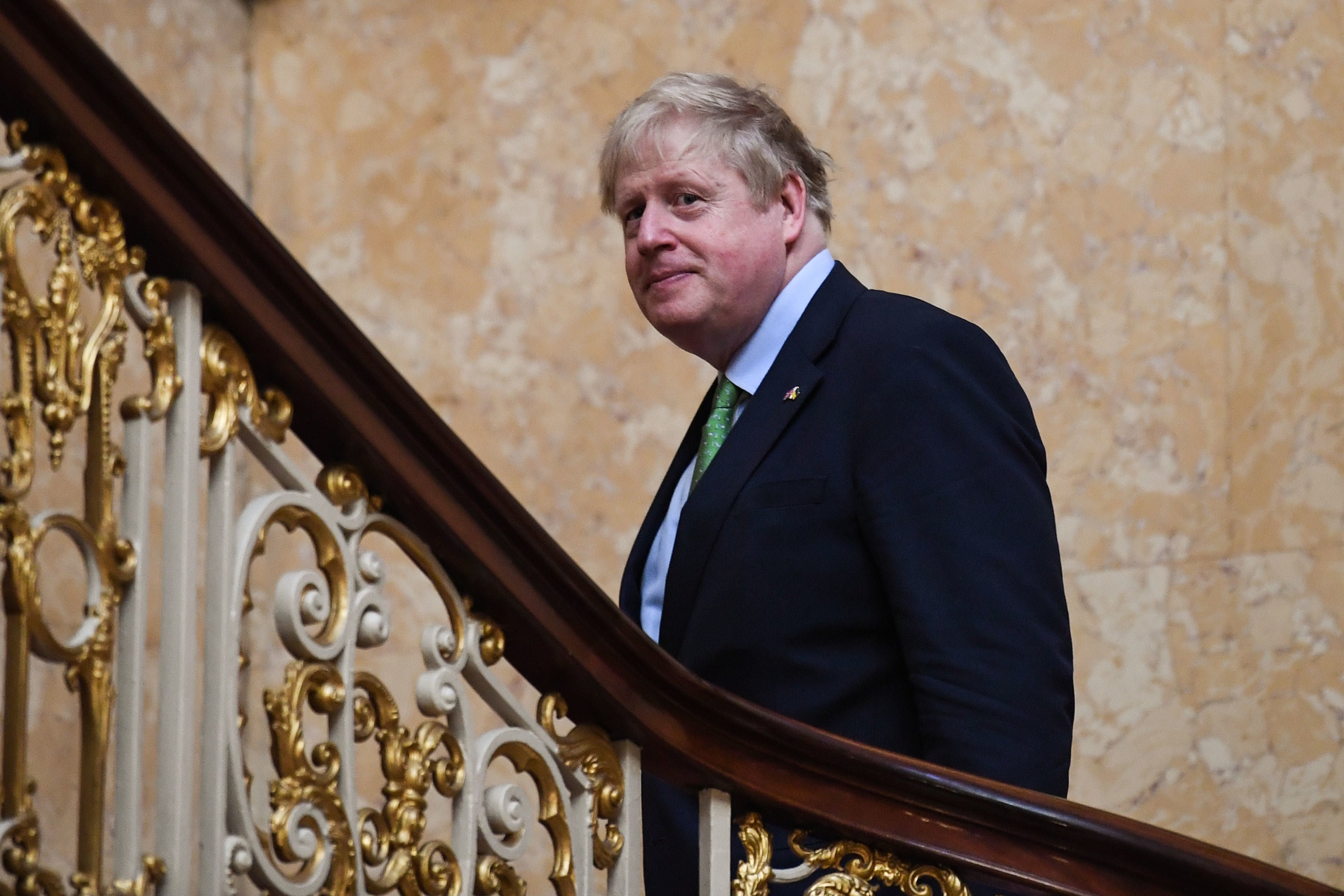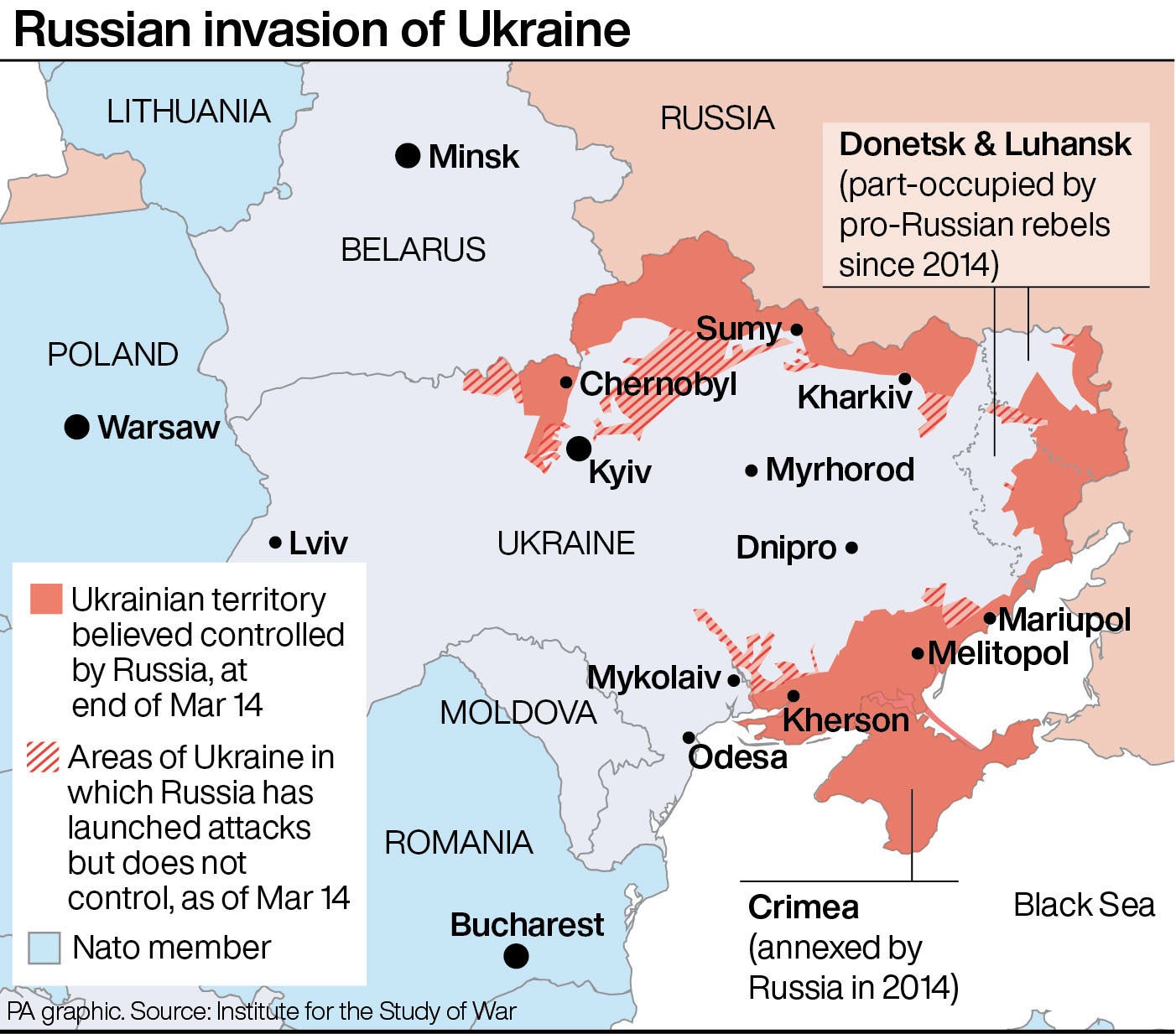Boris Johnson to call on Gulf states to step up oil production in response to Putin’s invasion of Ukraine
Visit to Saudi Arabia risks being overshadowed by row over human rights

Your support helps us to tell the story
From reproductive rights to climate change to Big Tech, The Independent is on the ground when the story is developing. Whether it's investigating the financials of Elon Musk's pro-Trump PAC or producing our latest documentary, 'The A Word', which shines a light on the American women fighting for reproductive rights, we know how important it is to parse out the facts from the messaging.
At such a critical moment in US history, we need reporters on the ground. Your donation allows us to keep sending journalists to speak to both sides of the story.
The Independent is trusted by Americans across the entire political spectrum. And unlike many other quality news outlets, we choose not to lock Americans out of our reporting and analysis with paywalls. We believe quality journalism should be available to everyone, paid for by those who can afford it.
Your support makes all the difference.Boris Johnson will plead with Gulf states on Wednesday to open the oil taps in the hope of seeing off a devastating spike in prices stemming from Vladimir Putin’s invasion of Ukraine.
But the prime minister was forced to defend himself from accusations that, in his search for help to deal with one bloodthirsty dictator, he was running straight into the arms of another, whose “appalling” approach to human rights was laid bare by the 81 executions announced by Saudi Arabia on Saturday.
Speaking ahead of his meeting with Saudi crown prince Mohammed bin Salman, Mr Johnson insisted that it was necessary to “build the widest possible coalition” in opposition to Putin.
Aides said he would urge the crown prince to denounce Mr Putin’s bloody war, which he has so far shied away from, reaffirming as recently as last week his country’s cooperation with Russia over oil.
But the Campaign Against Arms Trade said that the visit would only embolden “MBS” to feel he can continue supplying the weapons – many British-made – which have fuelled the eight-year war in Yemen.
Mr Johnson’s visit comes shortly after it emerged that MBS had refused to take a call from US president Joe Biden, who is urging Gulf states to step up fuel production to help international buyers move away from Russian hydrocarbons.
Mr Biden has apparently sparked the crown prince’s ire through earlier comments that Riyadh should “pay the price” for the murder of journalist Jamal Khashoggi in 2018.
Downing Street said the PM will raise human rights and the UK’s opposition to capital punishment with the kingdom’s de facto ruler, but declined to say whether Mr Johnson will raise Khashoggi’s death, in which MBS is widely alleged to have been implicated.
Speaking ahead of his visit, which also takes in the United Arab Emirates, Mr Johnson said: “The brutal and unprovoked assault President Putin has unleashed on Ukraine will have far-reaching consequences for the world, well beyond Europe’s borders.
“The UK is building an international coalition to deal with the new reality we face. The world must wean itself off Russian hydrocarbons and starve Putin’s addiction to oil and gas.
“Saudi Arabia and the United Arab Emirates are key international partners in that effort. We will work with them to ensure regional security, support the humanitarian relief effort and stabilise global energy markets for the longer term.”
Downing Street revealed that the trip is expected to see confirmation of a £1bn investment by Saudi Arabia’s Alfanar Group in a Teesside project aiming to produce sustainable aviation fuel from waste, potentially creating 700 jobs during construction and 240 in the long term.
But Labour leader Sir Keir Starmer has said that “going cap in hand from dictator to dictator is not an energy strategy”.
Labour’s climate change spokesperson Ed Miliband also said: “It is a sign of our vulnerability and energy insecurity as a country that the prime minister is going to Saudi Arabia to seek an increase in oil production, despite the appalling human rights record of the regime.
“Once again it demonstrates that the best solution to the energy crisis we face is a green energy sprint at home so once and for all we end our dependence on fossil fuels.
“The best way to tackle the cost-of-living crisis is Labour’s plan for a windfall tax on oil and gas producers to reduce household energy bills.”
And CAAT’s Kate Fallon said: “This trip signals that the prime minister plans not only to replicate but to entrench another trading relationship with a murderous regime with no regard for the right to life of their own citizens, yet alone those of another country such as Yemen.
“When we ask ourselves how did Russia feel so emboldened as to invade Ukraine, indiscriminately targeting civilians throughout the first three weeks of this devastating war, the answer lies in decades of silence, excuses and short-sighted self-interest illustrated perfectly by the unconscionable actions of the prime minister.”

The one-day visit comes as Mr Johnson prepares an energy supply strategy designed to help the UK wean itself off Russian gas and oil, which looks set to involve new drilling in the North Sea as well as an accelerated switch to nuclear and renewables.
It follows the announcement of UK sanctions on more than 370 individuals with links to Putin, as well as measures to prevent the export of luxury goods – like Rolls Royce or Bentley cars, couture fashion and artworks – to Russia.
Among those sanctioned were Putin’s prime minister Mikhail Mishustin, defence minister Sergei Shoigu and former president of Russia Dmitry Medvedev, as well as the Russian president’s chief spokesperson Dmitry Peskov and foreign affairs ministry spokesperson Maria Zakharova.
Oligarchs sanctioned included the chair of Russia’s biggest airport Alexander Ponomarenko and Alfa Bank founder Mikhail Fridman.
Punitive tariffs were slapped on a range of export products such as vodka, adding 35 per cent to their price, as both Russia and Belarus lost their “most favoured nation” status under World Trade Organisation rules.
Post-Brexit legislation to give the UK an independent sanctions policy has led to London lagging behind Brussels and Washington in blacklisting superwealthy plutocrats close to Putin.
But the passage of the Economic Crime Act on Monday enabled the UK to match measures already taken by EU and US allies.
The move brings the total number of sanctions imposed to more than 1,000 since the invasion began on 24 February, with 775 relating to individuals and the remainder to banks, institutions, companies and subsidiaries.
Join our commenting forum
Join thought-provoking conversations, follow other Independent readers and see their replies
Comments